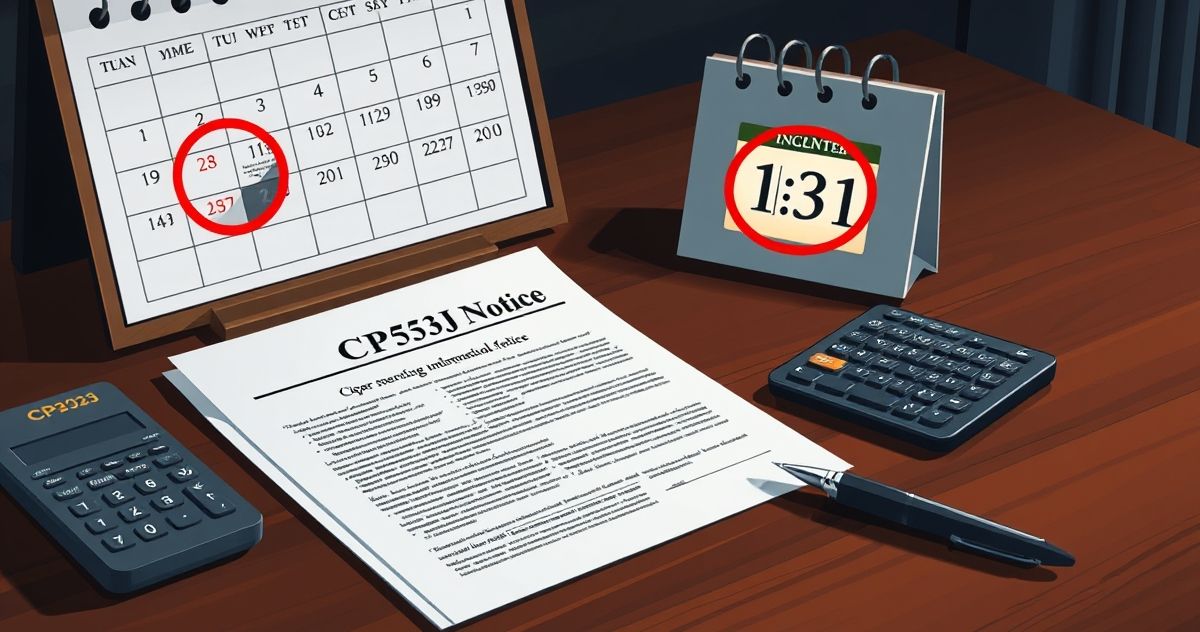Understanding the CP523J Notice
The CP523J Notice is a formal communication from the Internal Revenue Service (IRS) sent to taxpayers who have an outstanding balance on their tax account. This notice is typically issued when a taxpayer defaults on an agreed payment plan, such as an installment agreement. It serves as a crucial reminder that unless the taxpayer takes immediate action to address the overdue amount, further penalties and interest may be applied, potentially leading to more severe enforcement actions such as levies or liens.
What is the Primary Purpose of the CP523J Notice?
The primary purpose of the CP523J Notice is to inform and remind taxpayers about their overdue tax obligations and the need to act promptly to prevent further complications. The IRS uses this notice to communicate the seriousness of the unpaid balance and to encourage the taxpayer to either settle the amount in full or reach a new agreement with the IRS. It acts as both a warning and an opportunity for taxpayers to rectify their situation before any aggressive collection tactics are employed.
Key Features of the CP523J Notice
- Details of the Overdue Amount: The notice specifies the amount owed, including any accumulated interest and penalties. This helps taxpayers understand their total financial obligation.
- Payment Instructions: It provides clear guidance on how to make the payment, including options for online payments, checks, or money orders.
- Deadline for Action: The notice includes a specific date by which the taxpayer must respond or make payment to avoid further penalties.
- Potential Consequences: It outlines the possible actions the IRS may take if the taxpayer fails to comply, such as additional penalties, liens, or levies on income or assets.
Filing or Compliance Requirements
When a taxpayer receives a CP523J Notice, they need to understand the necessary compliance actions to resolve their tax debt effectively. The IRS expects the taxpayer to respond decisively by either paying the overdue balance in full or by communicating with the IRS to discuss alternative payment arrangements. It’s essential for the taxpayer to adhere to the deadlines provided in the notice to prevent the escalation of enforcement measures.
The IRS often provides several payment options to accommodate different financial situations. Taxpayers might opt for:
- Full payment of the overdue amount: This is the most straightforward route to resolving the notice and avoiding additional penalties.
- Setting up a revised installment agreement: If the original plan was defaulted on, taxpayers might negotiate a new payment agreement that aligns better with their current financial capabilities.
- Applying for an offer in compromise: This option allows taxpayers to resolve their tax debt for less than the full amount owed, subject to IRS approval based on specific eligibility criteria.
Penalties or Consequences for Non-Compliance
Ignoring or failing to adequately respond to a CP523J Notice can result in significant consequences. The IRS may escalate efforts to collect the debt, including:
- Increased Penalties and Interest: Further procrastination leads to additional financial burdens as interest and penalties continue to accrue on the unpaid balance.
- Tax Liens: These are public records that can impact the taxpayer’s credit score and ability to secure loans or financial products.
- Wage Levies or Bank Account Garnishments: The IRS can legally seize funds directly from the taxpayer’s wages or bank account to satisfy the debt.
- Seizure of Assets: In extreme cases, the IRS may seize personal property, including real estate, vehicles, or other valuable assets, to counteract unpaid taxes.
Importance of the CP523J Notice in Tax Resolution
The CP523J Notice plays a vital role in the broader context of tax resolution and financial compliance. It serves as an alert system, warning taxpayers of potential financial jeopardy while providing avenues for mitigation. Prompt acknowledgment and action in response to the notice are crucial. By directly addressing the issue upon receipt, taxpayers can:
- Minimize Outstanding Tax Liabilities: Resolving the matter quickly can prevent the escalation of debt and reduce additional charges.
- Maintain Financial Reputation: Addressing tax issues before aggressive measures like liens are necessary ensures stronger credit and financial standings.
- Avoid Legal Complications: Proactive communication with the IRS can help avoid legal tangles and preserve borrower-friendly conditions.
In conclusion, the CP523J Notice is essential for maintaining financial compliance with the IRS. Understanding and acting on the notice ensures taxpayers stay informed of their financial obligations, avoid severe penalties, and preserve their creditworthiness. It underscores the need for vigilance and responsibility in managing tax affairs and offers mechanisms to resolve debts comprehensively and efficiently.

